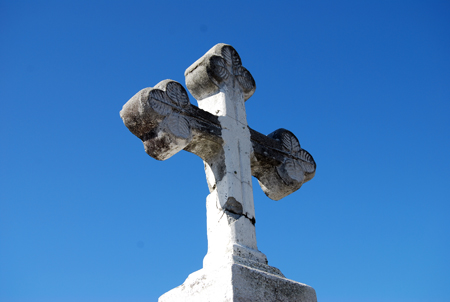I come with sad news. Bishop Michael Burbidge and Bishop Peter Jugis, bishops of the two Catholic dioceses in North Carolina, communicated to the Council early this year their plan to withdraw from membership at the end of December. This is not a hasty decision on their part; we and they have been engaged in dialogue for about four years. These conversations included a face-to-face meeting between the two bishops and the Council’s full Governing Board. But we have been unable to resolve differences regarding issues on which we are not in agreement, especially the Council’s neutrality on abortion and our opposition to the constitutional amendment defining marriage.
Let me take a moment to lift up and celebrate the rich history of Catholic participation with the Council. The two dioceses joined the NC Council of Churches in 1977, led into membership first by Raleigh Bishop Joe Gossman, who died in August, and then by Charlotte Bishop Michael Begley. We were among the first state councils to have Catholics as full members. Many state councils either have never had Catholic participation or have, like the National Council, had Catholics in some relationship less than full membership.
We have had wonderful participation and leadership from Catholics. Two (Fr. George Kloster and Bridget Brown Johnson) have served as Council President in the past, and Alberta Hairston, our current President, becomes the third. Others have chaired Council commissions and committees.
All of you who have been associated with the Council for more than the past decade will remember Sr. Evelyn Mattern with great love and deep appreciation. As Council Development and Communications Director Aleta Payne has noted recently, there’s none of the Council’s work, other than Partners in Health and Wholeness, that doesn’t carry Evelyn’s fingerprints. She was deeply engaged with issues of farmworkers and immigration; she directed the Council’s legislative program; she created what is now known as NC Interfaith Power & Light; she was the Council’s communications director; she campaigned for worker justice and equal rights for all.
Seven Catholics (Bp. Gossman, Bp. Begley, Fr. George, Bridget, Sr. Evelyn, Fr. Charlie Mulholland, and Fr. Joe Vetter) have received our annual Distinguished Service Award since 1977. Two Catholics (Ferrel Guillory and Gene Nichol) have received the Faith Active in Public Life Award.
We are grateful for this rich history with the two dioceses in North Carolina, even as we are saddened by the bishops’ decision, for it is a significant setback to our work for Christian unity. At the same time, we appreciate the bishops’ desire to continue to stand with us on issues where we are in agreement, and they are many: immigration reform, protections for farmworkers, just wages and safe environments for all workers, elimination of the death penalty, care of God’s creation, economic justice in our society, peace, and the elimination of torture.
Let me add a personal note. I came to North Carolina to work for the Baptist State Convention just a year after the two dioceses joined the NC Council of Churches, though I didn’t know that at the time. My work for the Baptists on social justice issues put me into occasional contact with most of the wonderful people named above and others from the Catholic Church. That contact has, of course, deepened in the 17 years I’ve been with the Council. So it is a sad thing for me to see the official tie between the dioceses and the wider Christian community come to an end. At the same time, I’m grateful for the bishops’ willingness to work together when we can and for the individual Catholics who will continue to bring a voice for the common good to our Governing Board.
–George Reed, Executive Director

